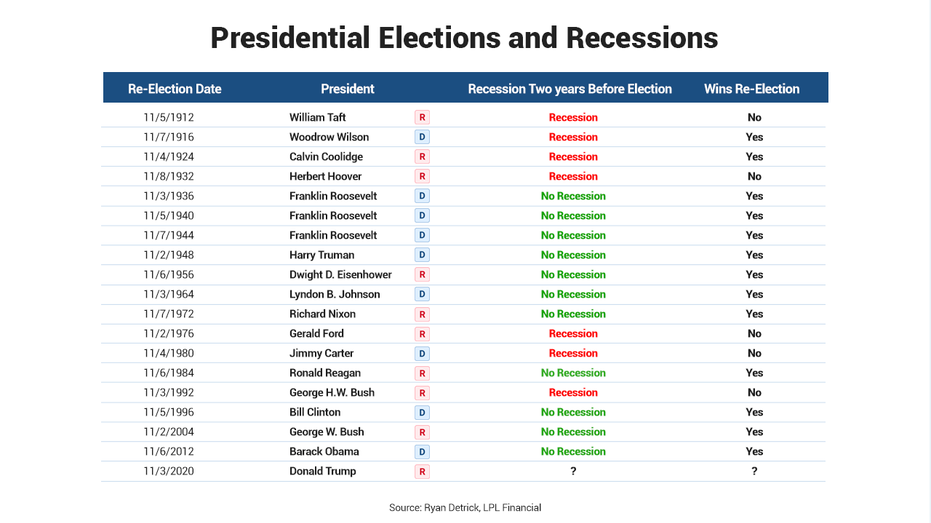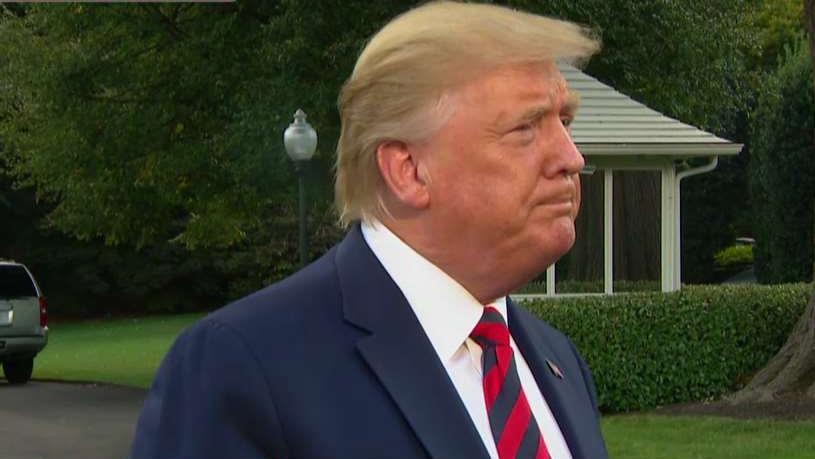US-China trade deal would pull economy back from 'tipping point'
Trade tensions between the U.S. and China began to thaw this week, a welcome sign for an economy that may be moving closer to a “tipping point,” according to Deutsche Bank
The reprive comes at just the right time for investors who had to navigate a monthlong escalation in the trade war and disappoinitng economic data. The S&P 500 finished Friday less than 1 percent from a record high after an August swoon.
Deutsche Bank thinks U.S. economic data and financial markets will weaken enough in the near-term to prompt the U.S. to step back from the brink, which might lead to a more permanent shelving of new China tariffs planned for December, a credible commitment from both sides not to escalate the trade war further and the scrapping of possible tariffs on cars and car parts.
“With these steps engendering reduced uncertainty, the economy should be able to regain its footing,” bank economists wrote.
President Trump on Wednesday announced the tariff increase that was scheduled to hit $250 billion worth of Chinese goods on Oct. 1 will be delayed until Oct. 15 out of respect for the People's Republic of China celebrating its 70th anniversary. Beijing reciprocated the goodwill gesture when Chinese state media on Friday said U.S. soybeans and pork would be exempt from additional tariffs.
The de-escalation of trade tensions may be coming at just the right time.
Economists at Deutsche Bank last week expressed concerns that a recent escalation in the trade war could push the U.S. economy into a mild recession, causing the Federal Reserve to cut rates to zero.
On Sept. 6, the same day the Bureau of Labor Statistics said 130,000 nonfarm jobs were added in August, missing expectations. A few days before that, the Institute for Supply Management said the U.S. manufacturing sector in August contracted for the first time in three years as trade concerns led to a “strong contraction in new export orders.”
“The economy is showing greater sensitivity to this turmoil, with leading indicators for manufacturing sentiment and capex sending dire signals and accumulating evidence of spillovers to the broader labor market and services sector,” the economists said.
The U.S. economy was already slowing ahead of the data. On Aug. 29, the Commerce Department said the U.S. economy grew at an annualized rate of 2 percent in the second quarter, down from the 3.1 percent growth experienced in the first quarter.
Growth is expected to slow further in the coming quarters. Sal Guatieri, senior economist at BMO Capital Markets, sees growth slowing to 1.9 percent in the third quarter and getting weaker into next year.
“Economic growth is expected to stay modest at 1.6% in Q4 and 1.8% in 2020, with the drag from trade protectionism tempered by easier monetary policy and about $50 billion of new federal spending announced in the July budget deal,” he wrote.
The U.S. economy’s ability to avoid a recession, or consecutive quarters of contraction, will be key to Trump’s reelection hopes in 2020. Trump doesn't want to suffer the same fate as former President George H.W. Bush, who was the last U.S. president to run for reelection in the wake of a recession and lost.
CLICK HERE TO READ MORE ON FOX BUSINESS
The sitting U.S. president is a perfect 11 for 11 in winning reelection if the economy stayed out of a recession in the 24 months ahead of an election, said Ryan Detrick of LPL. Presidents who steered the economy into a recession ahead of an election lost five of seven campaigns, he said.





















